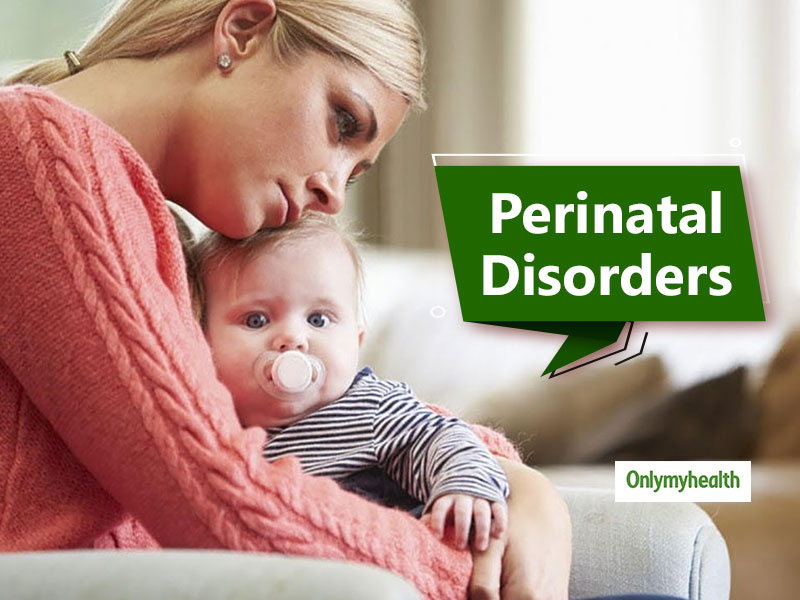
The decision to have a baby hence of becoming a parent is tough, and it’s a big responsibility which changes many things related to your personal or professional lives. Sometimes, it makes parents, especially the mother, think so much about newborn babies, about a new beginning of life, several responsibilities, etc., that they sometimes get into mental health illnesses.
Table of Content:-
Therefore, you come up with frightening thoughts which make you feel depress and mad and entirely out of control. You get exhausted with surroundings. No matter what do you think, but the important thing is that you are not going to harm yourself and your child. You must share your feelings and thought with a family member, friend, or health professional so that you can get support.
There are different kinds of perinatal mental health problems, such as:
*Perinatal depression

When a woman goes into depression during or after pregnancy, it is said to be perinatal depression. There are two types of perinatal depression-
- Perinatal depression- depression during a pregnancy
- Postnatal depression- depression after a pregnancy
Many people know postpartum depression (PND), but fewer people know about the depression that women experience during pregnancy.
Also Read: Pregnancy Tips: 5 Healthy Fruit Juice For Strength And Energy
*Perinatal anxiety
Anxiety experienced during or in the year after childbirth is perinatal anxiety. It is of two types-
- Prenatal or antenatal anxiety- If you experience anxiety during pregnancy
- Postnatal anxiety- If you experience it after giving birth
Many ladies suffer from depression during and after pregnancy. However, it is less known that many women also suffer from anxiety; hence, women can suffer from depression and anxiety together. Women experience a particular type of anxiety, i.e., tokophobia, which is a fear of childbirth. Diet is extremely important here.
*Perinatal Obsessive-compulsive disorder (OCD)

It is a type of anxiety disorder which involves obsessions and compulsions. In daily life, we talk about being a bit OCD to someone who likes neat and tidy things. The reality is different, and a lot more complicated and severe. Women experience perinatal OCD during pregnancy or in the year after giving birth.
*Postpartum psychosis (PP)
It is a serious but rare mental illness and diagnosis occurring in around one in 1,000 births. It is a mix of depression, mania and psychosis. Symptoms usually start suddenly within a few weeks after delivery. PP is sometimes referred to as puerperal psychosis.
Postpartum psychosis can be an overwhelming and frightening experience for you and your loved ones, so it is essential to ask for help as early as possible. With the right support, most women can fully recover.
*Postpartum PTSD
Post-traumatic stress disorder (PTSD) may occur if you:
- A prolonged labour pain with painful childbirth
- Unplanned caesarean section
- Emergency treatment
- Other shocking, unexpected and traumatic experiences at birth
- This is also called birth trauma which may damage your relationship with your baby and partner.
- If you develop PTSD, you may also experience bad memories of flashback or traumatic birth. This may mean that you are worried about giving birth to another child.
Also Read: Why A Healthy Pregnancy Requires A Healthy Mental Health
Treatment for mental health problems may include:
Prescription medicine

Always consult your doctor before taking or stop taking any medications during pregnancy. Tell your doctor if you are taking any medication for mental health problems and are pregnant or planning to become pregnant. Do not stop taking it unless your doctor tells you.
Talk therapy
One-on-one conversations with the therapist are an excellent way to relieve stress, relieve depression and reduce anxiety during pregnancy. Find a support group where you can share your concerns with other mothers who already had gone through your experience can also help. Talking to a social worker or counsellor can help you deal with money issues, concerns about raising a child or other stress in life.
Other approaches
Many women feel comfortable in activities such as yoga, exercise and meditation. If you feel stressed or overwhelmed, talking to friends, family or faith leaders can help you feel better. Many mothers feel anxious or depressed at some point during pregnancy and may even need treatment. So, you should soon get help from a doctor or any other stuff that can make you feel then only you will do the best for yourself and your baby.
Read more articles on Women’s Health
How we keep this article up to date:
We work with experts and keep a close eye on the latest in health and wellness. Whenever there is a new research or helpful information, we update our articles with accurate and useful advice.
Current Version
